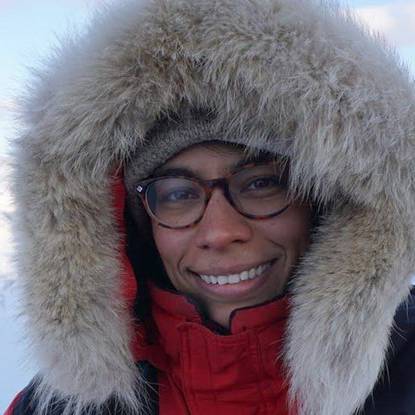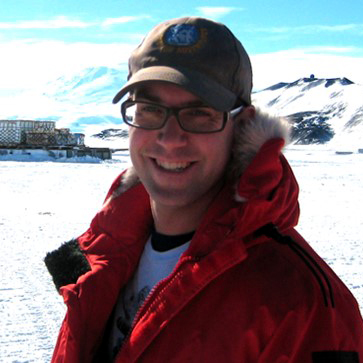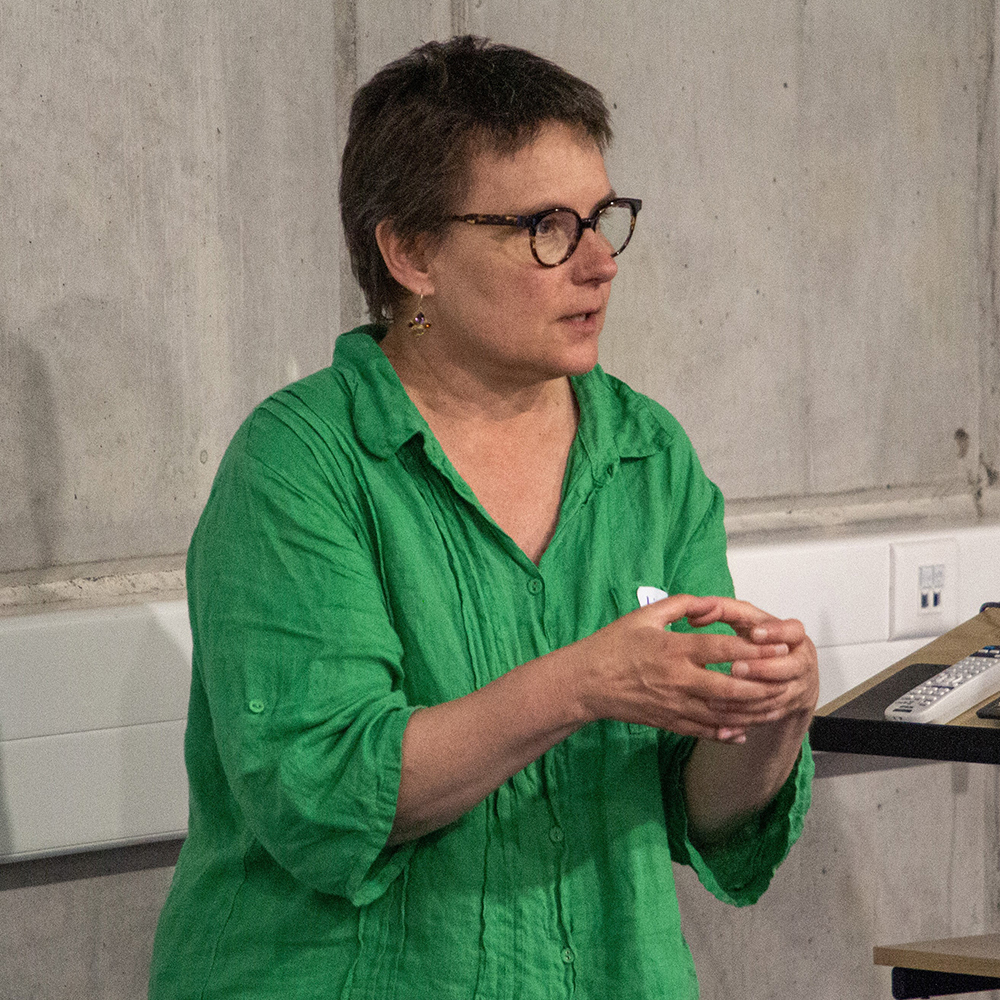Canadian Committee on Antarctic Research
POLAR's Canadian Committee on Antarctic Research (CCAR) provides advice and guidance to POLAR on Antarctic matters including opportunities to strengthen Canadian Antarctic research activities, and serves as Canada's National Committee under the Scientific Committee on Antarctic Research (SCAR).
Current members of CCAR
Dr. Thomas James (chair)

Dr. Thomas James is a research scientist with the Geological Survey of Canada at Natural Resources Canada. He holds a Ph.D. in geophysics from Princeton University and is an adjunct professor at the University of Victoria. Dr. James studies glacial isostatic adjustment, which is the response of the solid Earth to ice sheet and glacier changes and is particularly interested in sea-level change of the past, present and future. He has worked on models of glacial isostatic adjustment for Antarctica that have been used in the analysis of satellite data to discern the present-day Antarctic contribution to sea-level change. Dr. James carried out field work in the Transantarctic Mountains as part of an American team and has been active in groups and programmes of the Scientific Committee on Antarctic Research since 2004. As Chair of the Canadian Committee on Antarctic Research, Dr. James has worked to develop a Canadian Antarctic Research Program. Most recently he has led the planning of the Canadian Antarctic Research Expedition to the South Shetland Islands and Antarctic Peninsula on the HMCS Margaret Brooke.
Dr. Karen Alley

Dr. Karen Alley holds a Ph.D. from the University of Colorado Boulder, Geological Sciences and is an Assistant Professor at the University of Manitoba, where she contributes to the global glaciological community's effort to understand how the world's glaciers and ice sheets are contributing to sea-level rise in a warming climate. Her work in particular uses remote sensing and field data to advance the understanding of collapse processes affecting Antarctica's floating ice shelves. She has worked in Antarctica, Greenland, and the Canadian Arctic Archipelago, and is a member of the International Thwaites Glacier Collaboration and the World Meteorological Organization's Global Cryosphere Watch Advisory Group.
Dr. Jacqueline Goordial

Dr. Jackie Goordial is an Assistant Professor in the School of Environmental Sciences at the University of Guelph. She is a polar microbial ecologist primarily focusing on permafrost microbial ecology in the Antarctic and Arctic. Her work investigates how poorly understood cold-adapted microorganisms drive nutrient cycling (with a focus on carbon) under cold and sub-freezing conditions, and how warming or other disturbances may alter these processes. To carry out her research, Goordial employs a combination of experimentalist approaches to nutrient cycling, genomic sequencing, and field-based measurements to understand how microbes drive carbon flux in the environment. Dr. Goordial also holds a Fellow position in the Canadian Institute for Advanced Research (CIFAR) Earth 4D subsurface science and exploration program.
Dr. Bonnie Hamilton

Dr. Bonnie Hamilton is an ecotoxicologist and Postdoctoral Fellow at the University of Ottawa in the Department of Geography, Environment, and Geomatics. Her research integrates principles from aquatic ecology, environmental analytical chemistry, and conservation biology to investigate questions about the environmental transport, ecological fate, and biological effects of emerging contaminants under a changing climate. In addition to her research, she serves as a technical expert on the Arctic Council's Arctic Monitoring and Assessment Program's expert groups on Litter and Microplastics and Persistent Organic Pollutants.
Dr. Denis Lacelle

Dr. Denis Lacelle is a Professor in the Department of Geography, Environment, and Geomatics at the University of Ottawa, where he holds a University Research Chair in Sustainable Permafrost Environments. His research focuses on investigating near-surface permafrost disturbances on water quality under a changing climate, as well as the origin, stability, and habitability of ancient ground ice and permafrost. He also explores polar environments as planetary analogues. He has worked in the McMurdo Dry Valleys, Lake Untersee oasis, and Queen Maud Land, primarily in collaboration with the United States.
Dr. Patrick Maher

Dr. Patrick Maher is a Professor in the School of Physical and Health Education at Nipissing University. His research focuses on the meanings people derive from their experiences visiting Polar Regions and how those visits influence behaviour and values related to global sustainability challenges. His doctoral research at Lincoln University (New Zealand) was supported by a Commonwealth Scholarship and Antarctica New Zealand.
Dr. Lisa Miller

Dr. Lisa Miller is a climate geochemist with Fisheries and Oceans Canada, studying how air-sea exchange processes in the polar oceans influence the global carbon dioxide cycle and aerosol production. Her first Antarctic expedition was on the maiden voyage of the Nathaniel Palmer in 1992, where she studied deepwater formation in the Weddell Sea. Since then, she has spent many months on sea ice, working to understand its biogeochemistry.
Dr. Randy Scharien

Dr. Randall (Randy) Scharien is an Associate Professor at the University of Victoria. His research interests include field- and remote sensing-based studies of polar sea ice and ice sheet variability and change in climate and ecosystem contexts. His current research involves the development of new observational tools for the multiscale analysis of cryosphere components, integrating in situ, airborne, and satellite measurements, with a focus on radar scatterometry, altimetry, and synthetic aperture radar. Dr. Scharien holds a Ph.D. in Microwave Remote Sensing of Sea Ice from the University of Calgary and previously held a fellowship with the European Space Agency.
Dr. Christian Schoof

Dr. Christian Schoof is a physical glaciologist who combines field observations with physics-based mathematical modeling to improve our understanding of glaciers and polar ice sheets, with a particular focus on the dynamics of the Antarctic ice sheet. He moved to the University of British Columbia in 2002 after completing degrees in physics and applied mathematics in the UK and has been a faculty member since 2007.
Dr. Chris Watson

Dr. Chris Watson is a Research Scientist with the Radio and Space Physics Laboratory at the University of New Brunswick. Dr. Watson's research focus is the structure and dynamic behaviour of the high-latitude ionosphere, understanding the geospace coupling mechanisms that shape this behaviour, and improving Canadian resilience to ionospheric variability and associated space weather. He is lead investigator of Space Weather Ionospheric Network Canada (SWINCan), a network of radio instruments in the Arctic and Antarctica purposed for ionosphere and geospace monitoring. Dr. Watson holds a Ph.D. in Space Physics from the University of New Brunswick.